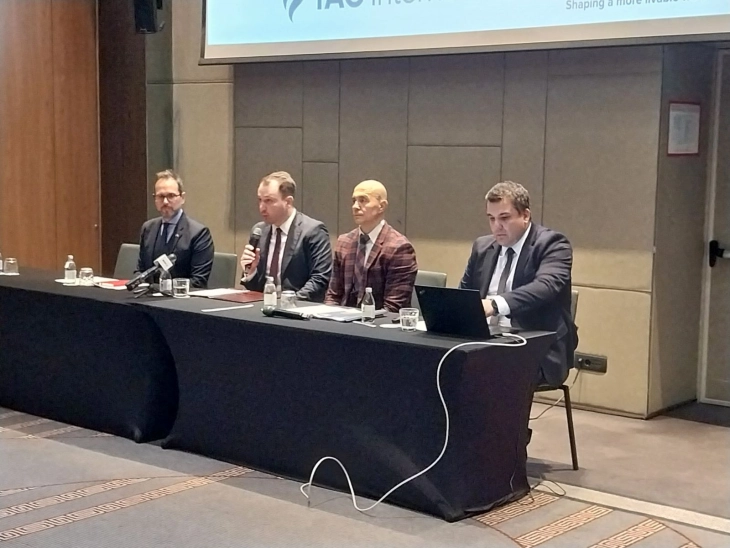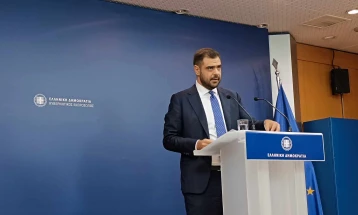Andonovski: Developing cybersecurity infrastructure, new national strategy aligned with EU directives
- Cyber attacks on critical infrastructure in the region have been more frequent lately and protecting the country's critical infrastructure – energy, water supply, transport, health care systems — is the state's top priority, Minister of Digital Transformation Stefan Andonovski said at the start of a two-day workshop on national cybersecurity capacity building.
- Post By Magdalena Reed
- 13:51, 30 August, 2024

Skopje, 30 August 2024 (MIA) — Cyber attacks on critical infrastructure in the region have been more frequent lately and protecting the country's critical infrastructure – energy, water supply, transport, health care systems — is the state's top priority, Minister of Digital Transformation Stefan Andonovski said at the start of a two-day workshop on national cybersecurity capacity building.
In his remarks, Minister Andonovski said the Ministry of Digital Transformation had recently started drafting a new National Cybersecurity Strategy for 2024-2028. He said an expert workgroup was formed to work on this strategy, aligning it with the EU-wide legislation on cybersecurity.
"The challenges before us are many: Highly complex and interdependent critical infrastructure systems. Outdated technologies often used in critical infrastructure, lacking security features and updates. A shortage of qualified cybersecurity professionals, and a lack of awareness and training in employees and users of this infrastructure as well as in the entire public administration," Andonovski said.

He also noted there were gaps and inconsistencies in the legislation that prevented coordination and sharing of information between different stakeholders.
"Our goal is to create a safe, secure and resilient digital environment contributing to the uninterrupted development of the digital economy and society. The government and the ministry are deeply committed to creating a comprehensive cyber security infrastructure," he said, adding that their goal was not only to respond to existing threats but also to anticipate and prevent potential risks.

The public administration minister also recalled a report by the State Audit Office saying that institutions did not efficiently protect their critical information systems, legislation had not been aligned with European directives, and the National Cybersecurity Council was not operational.
"This is why the new national cybersecurity strategy will be a key document paving the way for strengthening our capacities," Andonovski said.
Deputy Head of Mission at the British Embassy in Skopje Daniel Fieller addressed workshop participants as well. He spoke about the importance of cybersecurity and related British experiences.

The workshop will review a draft version of the minimum cybersecurity standards that should be mandatory for government institutions with the aim of testing them through December of this year and guiding policymaking regarding cybersecurity.
The workshop is part of a project on improving regional cybersecurity in the Western Balkans funded by the United Kingdom, which aims to raise awareness, build capacities and improve cybersecurity. The implementation of the project started in August 2023 and is set to end in March 2025. mr/







